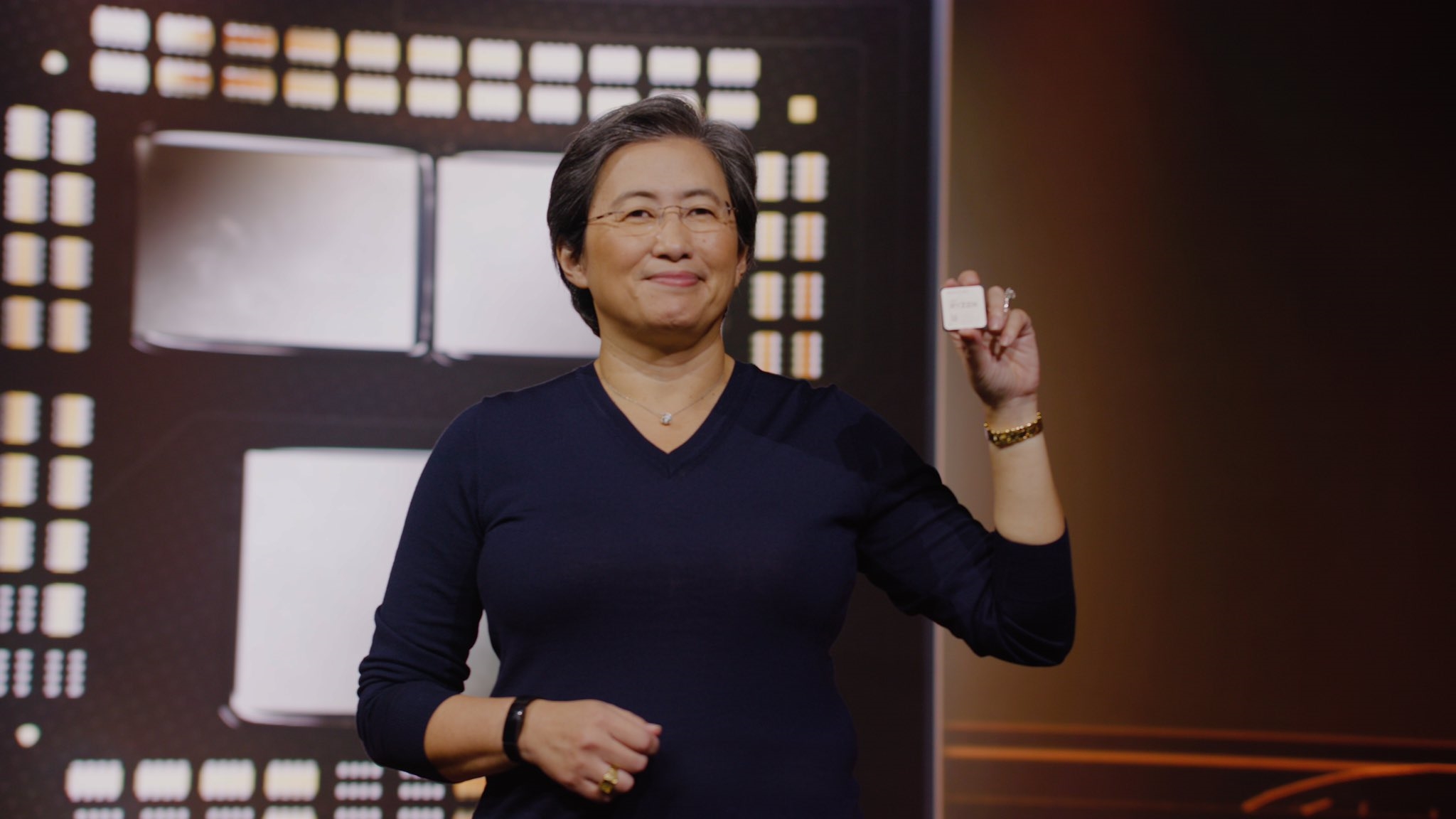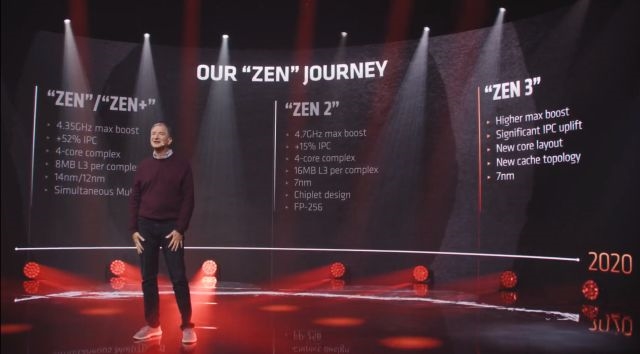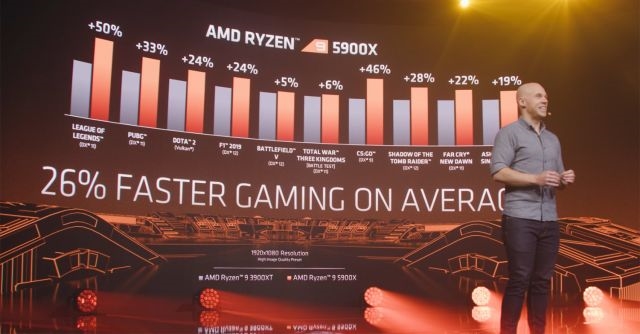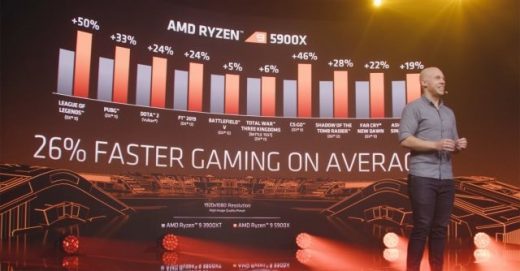AMD’s Ryzen 9 5900X is its first Zen 3 CPU

How can AMD follow up its successful third-gen Ryzen 9 CPUs? Last year, it was clear that the company was seriously bringing the fight to Intel, especially when it came to gaming and heavy-duty computing workloads. So for its new Zen 3 architecture, AMD went back to the drawing board to create a faster platform that’s even more power efficient. The company says it’ll be able to reach even higher boost speeds than before, and offer 19 percent faster instructions per clock (IPC), which describes overall performance. Today it unveiled its first chip on the new platform: the $549 Ryzen 9 5900X, which will be released on November 5th.

The 5900X is a 12-core/24-thread chip with a 4.8GHz boost speed, 64MB L3 cache and 105-watt thermal design profile. AMD says it 5900X offers 26 percent faster gaming performance than its Zen 2 chips, making it a strong upgrade even if you bought a new Ryzen CPU last year. In particular, the 5900X will offer far stronger single-core performance, which has traditionally been a major weakness for AMD. The company says it’s the first desktop CPU to go beyond a 600 point score in the Cinebench R20 1T benchmark, with a score of 631. (In comparison, Intel’s 10900K hit 544 points even though it was running at a higher clock speed.)

As for the rest of its new 5000-series, there’s the eight-core Ryzen 5800X and six-core 5600X, which will sell for $449 and $299 respectively. AMD also saved a special reveal for the end of its launch event: the Ryzen 5950X, a monstrously powerful 16-core chip with a 4.9GHz boost speed and 72MB of L2 and L3 cache. What’s most surprising is that it keeps the same 105W TDP as the 5900X. Its power will cost you, though, as it’ll go for a whopping $799. That makes the 5950X a good option for anyone who wants performance similar to AMD’s Threadripper chips, but most gamers would be better off with the significantly cheaper 5900X.
So what makes the Zen 3 architecture so special? AMD CTO Mark Papermaster says it reworked its core design to create a unified 8-core complex, which lowers instruction latency and lets every core directly reach the chip’s L3 cache. That’ll be especially useful for gaming and and other latency sensitive tasks, like streaming your gameplay to Twitch. Overall, he said Zen 3 will offer 24 percent faster performance per watt compared to Zen 2, and it’ll be 2.4x faster than Zen 1.
AMD isn’t sitting on its laurels, either. The company says it’s currently designing Zen 4, which will be its first 5nm architecture.
(21)



